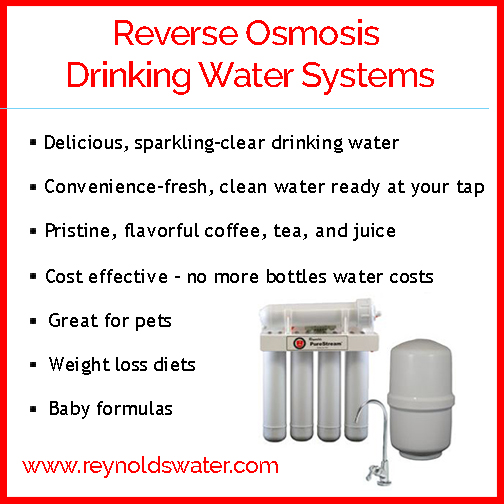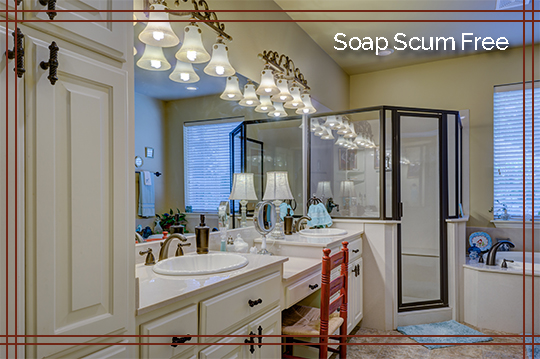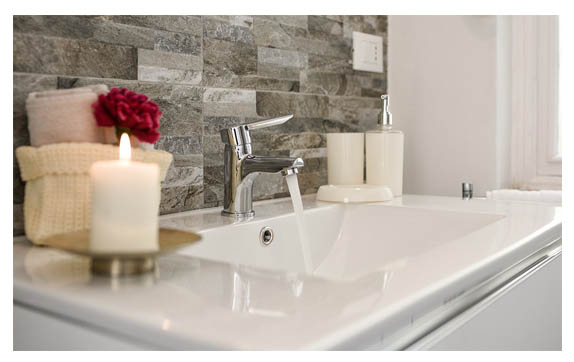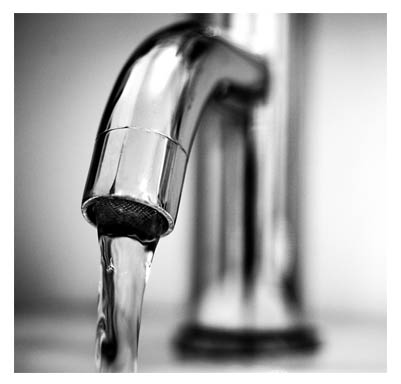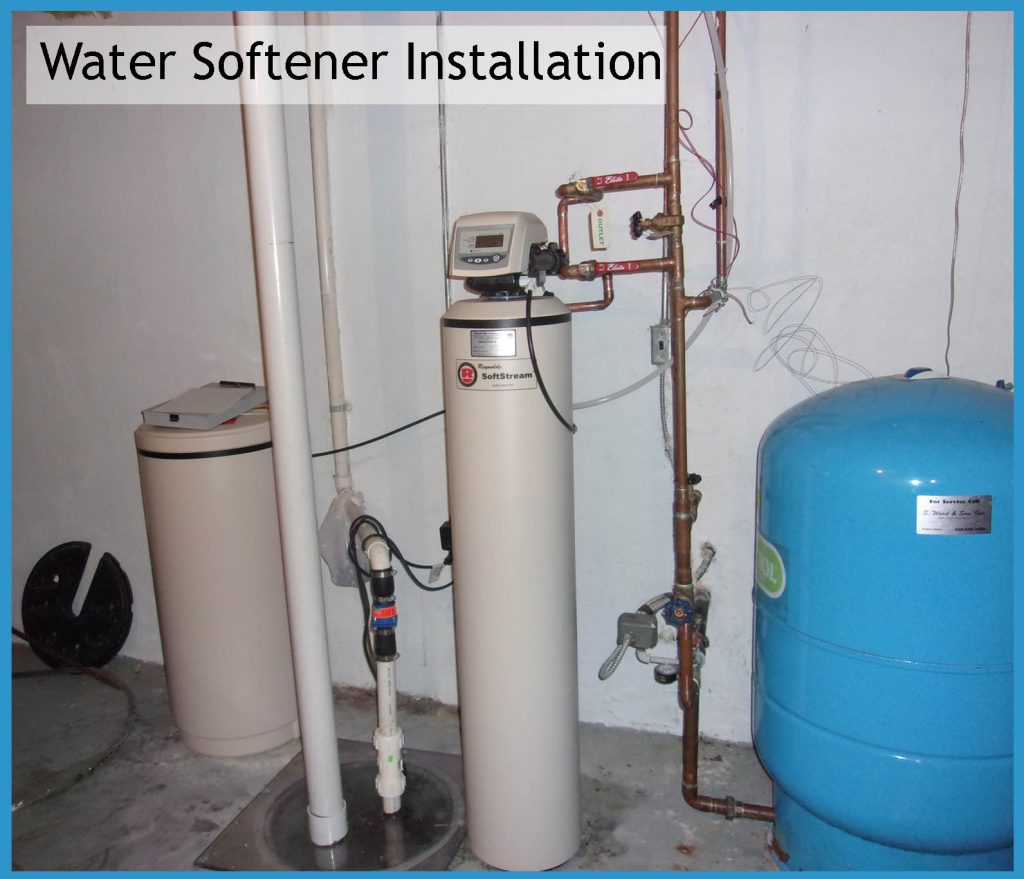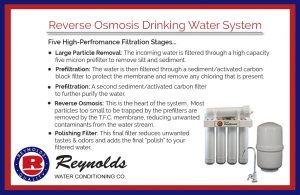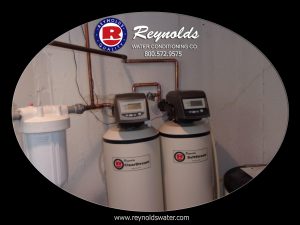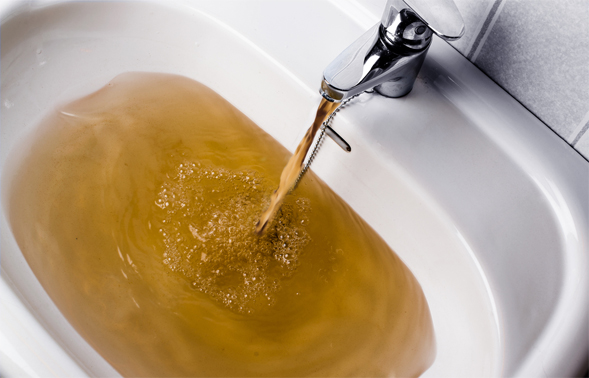
How many homeowners can honestly say they would be okay drinking water from their taps that comes out brown? ZERO, that’s how many! Brown water occurs because of contamination in their water from Iron and Manganese, common elements found in well water. Thankfully there are water treatment options available to remove these contaminants. Both Iron and Manganese are found in soil thus washing into the well water drinking supply. The good thing is that you don’t have to live with contaminants in your water.
Contaminants in your homes water supply certainly can be a nuisance. Iron and Manganese cause several issues including metallic tasting water, stained laundry, clogged plumbing, and an oily or crust sheen on the surface of the water. This is one of the reasons high levels of the contaminants are treated using whole house water treatment systems.
In 1974 the federal government set in place visual standards for water because of the effects of Iron and Manganese. Although state health-based standards are not in place for metals in drinking water, there are some concerns that high levels of manganese are bad for formula-fed infants. Infant formulas naturally contain manganese, so the National Health Department recommends mixing formula with water with a low manganese level.
Iron and Manganese Testing
It is easy to recognize elevated levels or iron and manganese in water including a bitter, metallic taste and orangish-brown staining on bathroom fixtures, clothes, and more. It is however important to test the water before treating it in order to determine the amount of minerals and metals that are in the water. Two types of metals are commonly found in a homes water supply including reduced and oxidized. Water that has a reduction in iron and manganese often looks clear, initially however will form solid orangish brown solid particles. Water with oxidized iron and manganese will have visible particles upon being drawn from the well.
Water Treatment Options
Once your well water is tested and you are told what type and amounts of iron and manganese are in the water, water treatment specialists like the ones at Reynolds Water Conditioning can help you determine the best treatment option for your home. It is important to note that some filtration such as oxidation filtration which injects oxygen into the water to remove impurities only removes iron. The water will need an additional chemical treatment to remove manganese.
Water softeners are often installed to treat hard water. They can also remove small amount of iron and manganese. Water softening units use an ion exchange process which replaces iron and manganese with sodium. The metals are removed from the softeners filtering resin through a process of backwashing.
Another treatment option to remove iron and manganese from water is through a point of use reverse osmosis systems. This treats water at the tap which is usually where drinking and cooking water is drawn from. The filter uses different membranes to remove unwanted molecules in water to be filtered from the water. Although this is a fairly simple method of getting water without metal it does not treat water throughout the house. Thus, staining will still occur in bathrooms and in laundry and water in other parts of the house will have the metallic taste.
The experts at Reynolds Water Conditioning have a solution to your homes unique water quality needs including: arsenic, bacteria, chlorine, rotten egg smell, fluoride, hard water, iron, lead, acid, tannins, radon, and more. More information on our water treatment solutions including water softeners and conditioners, water filtration and purification, reverse osmosis drinking water, and iron & odor removal can be found online at https://reynoldswater.com.

